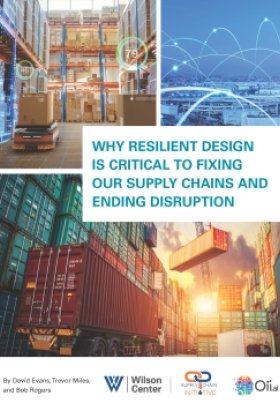
There is a perception that supply chain disruption is solely driven by “Black Swan” events like Covid and the Ukraine war. However, this is not the case. Operational disruption is endemic and is driven by the way supply chains are designed and planned. Supply Chains are highly variable complex networks of interconnected functions and organizational units that are dependent on planning systems to orchestrate the multitude of activities upon which the servicing of end customer demand is dependent. However, these systems have two major flaws: Firstly, they ignore inherent variability in their planning methodology. Secondly the design and configuration of these systems is manual and dependent on human operators to model the complex networks they serve. This planning conundrum drives operational disruption resulting in service failures, costs, inventory imbalances and waste. The supply chain of the future will utilize AI to automate the design of planning systems utilizing simulation to model variability and identify resilient networks that can respond in a cost efficient and agile way to risk and disruption.



